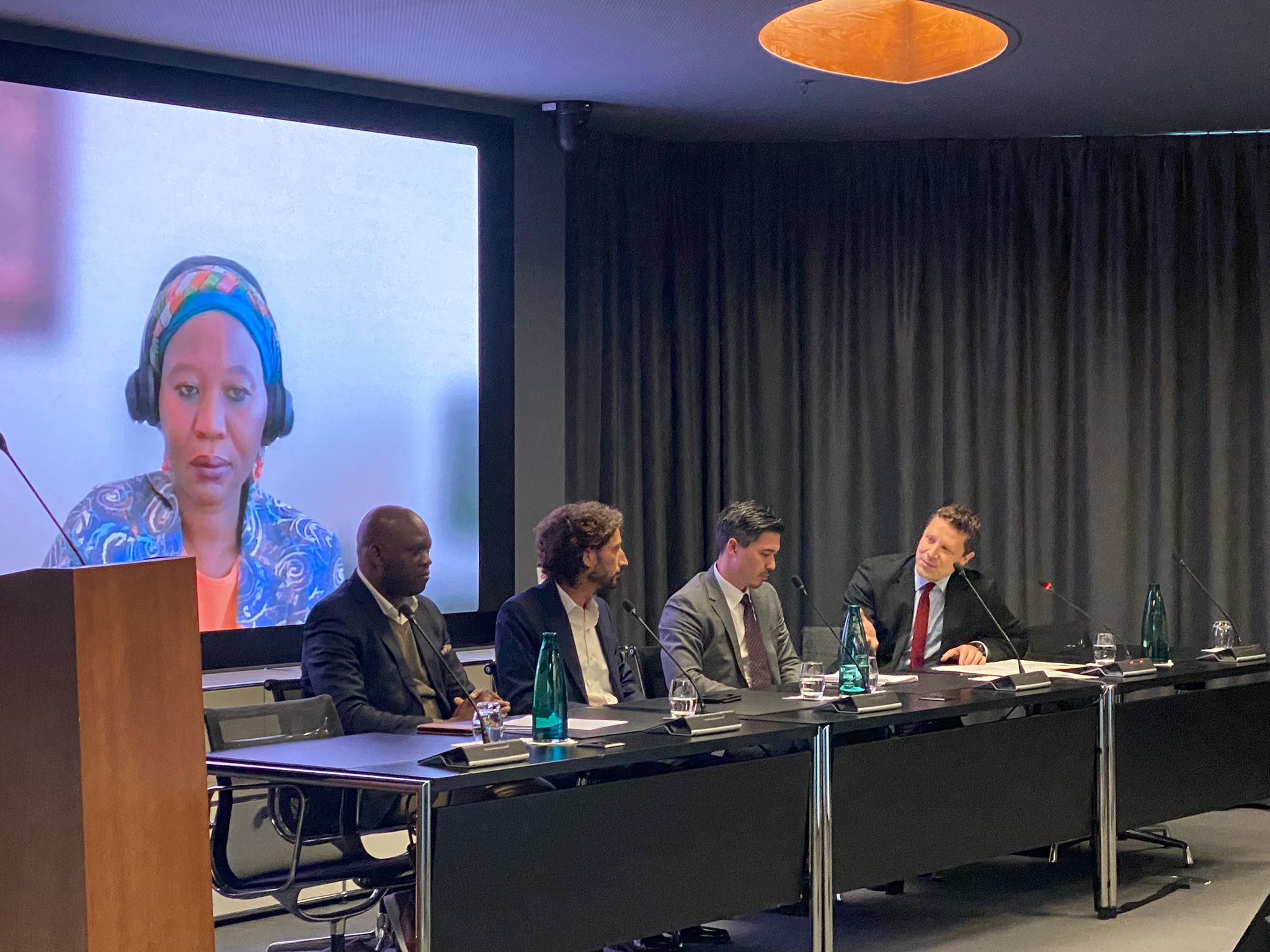This year’s Geneva Peace Week saw the Finance for Peace initiative of Interpeace host a policy briefing discussion jointly with the Permanent Mission of the Federal Republic of Germany to the United Nations in Geneva. The sessions was titled “Peacebuilding and private finance actors: investing in partnerships that create peace” and it attracted a full house on the second day of the Peace Week which celebrated its 10th anniversary this year.
The session was moderated by Felix Kroll, Head of the Political Department at the German Mission, and the panellists included Finance for Peace’s partners representing the UN, a development finance institution and a civil society organisation from Mozambique:
Dr Roselyn Akombe, Chief, Peacebuilding Strategy and Partnerships Branch; Office of the Assistant Secretary-General for Peacebuilding Support.
Daniel Hyslop, Head of Research and Senior Peacebuilding Advisor; Interpeace – Finance for Peace initiative
Prof. Adriano Nuvunga, Director; Centre for Democracy and Development
Frederik Teufel, Lead Coordinator, Transition States Coordination Office; African Development Bank
The key points highlighted during the discussion were:
- Conflict is growing but peacebuilding funding is at a 15-year low. The need to catalyse funding from new sources is urgent.
- This requires building a market for peace by bringing together the peacebuilding and finance sectors. The private sector has real potential to unlock wealth in fragile and conflict-affected settings (FCS), but, importantly, local communities will only benefit if peace-aligned approaches are used.
- Peace Finance builds on the global momentum generated by the New Agenda for Peace, and the UN Secretary-General’s call for international financial institutions to become ‘agents for peace’, which combined with the High-Level Advisory Board process on multilateral institutions reform, paves the way for the 2024 Summit of the Future.
- Peace Finance seeks to not only embed a do-no-harm investment approach but it to actively contribute to peace by shifting away from grant-based, short-term peacebuilding to longer-term engagement with private sector actors, through partnerships with development finance actors.
- Peace Finance provides a catalytic way of de-risking the investment environment by using peacebuilding mechanisms and of creating additionality for both investors and local communities, which is key to unlocking more investments into FCS.
See below for key quotes by the speakers during session.
Dr Roselyn Akombe: “When peace agreements fail to integrate women, civil society members, the youth, and private sector actors, they often fail. It is time for us to start de-risking for communities, to ensure that returns upon investments are invested back into the communities we serve. The Summit for the Future offers the opportunity to entrench these narratives and build more partnerships to create the right market for peace.”
Daniel Hyslop: “Peace Finance is not just a nice thing to do. It is the key paradigm to de-risking investments first for communities and then for investors. This is what we are here to do.”
Felix Kroll: “Blended financing is key to incentivising companies and investors to invest in high-risk environments, where livelihoods, peace, and economic growth are needed the most.”
Prof. Nuvunga: “If the private sector takes shortcuts on issues such as governance, human rights due diligence, inclusivity, it will ultimately lead to conflict. We need to shift the mindset of the private sector operating in conflict-sensitive areas towards community-centric development models, through the co-creation of strategies for peacebuilding”.
Frederik Teufel: “Inclusive approaches to development ensure that we leave no one behind. Peace Finance seeks to go beyond a do-no-harm approach to actively contribute to peace in contexts that have been marginalised politically and economically. Its ability to convene a diversity of stakeholders and create alliances with the African Union, Regional Economic Communities and African governments also ensures African-led, locally-driven solutions.”

